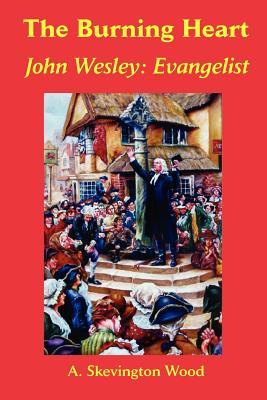Christianity Today says this book is one of the "top 5 books on Church History" (December 2007 issue). British Wesley scholars typically excel in their historical of John Wesley, and they do so for obvious reasons considering that Wesley was himself British. Living in the midst of Wesley's environment gives them an advantage in this regard. American Wesley scholars are famous for their theologies of John Wesley, but as one recent Wesley scholar has noted, you have as many "Wesleys" as you do contemporary Wesley scholars, each one mirroring Wesley in their own image and reconstructing him according to their own agendas. Here in this classic work A. Skevington Wood has the advantage of the British perspective and yet he provides a reliable interpretation of Wesley's own theological thinking. Wood also rightly notes that the key to understanding Wesley is to see him as an evangelist. This interpretative theme is the prism for seeing the whole Wesley. Wood's profound appreciation for Wesley allows him to penetrate insightfully into the central concerns and contributions of Wesley. The decisive contribution of this book is that it gives the reader a clear and straightforward account of the ancestry, life, and theology of John Wesley and it does so all in one volume.

The Burning Heart, John Wesley: Evangelist
Christianity Today says this book is one of the "top 5 books on Church History" (December 2007 issue). British Wesley scholars typically excel in their historical of John Wesley, and they do so for obvious reasons considering that Wesley was himself British. Living in the midst of Wesley's environment gives them an advantage in this regard. American Wesley scholars are famous for their theologies of John Wesley, but as one recent Wesley scholar has noted, you have as many "Wesleys" as you do contemporary Wesley scholars, each one mirroring Wesley in their own image and reconstructing him according to their own agendas. Here in this classic work A. Skevington Wood has the advantage of the British perspective and yet he provides a reliable interpretation of Wesley's own theological thinking. Wood also rightly notes that the key to understanding Wesley is to see him as an evangelist. This interpretative theme is the prism for seeing the whole Wesley. Wood's profound appreciation for Wesley allows him to penetrate insightfully into the central concerns and contributions of Wesley. The decisive contribution of this book is that it gives the reader a clear and straightforward account of the ancestry, life, and theology of John Wesley and it does so all in one volume.